- Neil Andersson
- Casey Burkholder
- Maria Carolina Cambre
- Anne Cockcroft
- Ashwin Desai
- Karishma Desai
- Sarah Flicker
- Geetanjali Gill
- Emma Harden-Wolfson
- Blane Harvey
- Jayne Malenfant
- April Mandrona
- Graciela Martínez- Zalce Sánchez
- Nanre Nafzinger
- Naomi Nichols
- Max Schleser
- Joshua Schwab-Cartas
- Kaylan C. Schwarz
- Jessica Taft
- Paul Ugor
- Catherine Vanner
Neil Andersson
 Neil Andersson is Professor of Family Medicine, director of the amalgamated CIET and Participatory Research at McGill (PRAM) and co-director of the McGill Institute of Human Development and Well-being. He has a special interest in large scale pragmatic trials that incorporate community views and resources in primary prevention.
Neil Andersson is Professor of Family Medicine, director of the amalgamated CIET and Participatory Research at McGill (PRAM) and co-director of the McGill Institute of Human Development and Well-being. He has a special interest in large scale pragmatic trials that incorporate community views and resources in primary prevention.
Casey Burkholder
 Dr. Casey Burkholder (she/her) is an Associate Professor and Canada Research Chair in Social Justice in Youth and Child Studies at Concordia University. Her scholarship engages participatory visual research approaches with 2SLGBTQIA+ youth and adults to explore gender and sexuality (inside and outside of schools) through collaborative art production, archiving, and exhibition. Casey has co-edited four books on qualitative, arts-based, and participatory visual research methodologies, including 1. Integrating Mobile Phone Technology into Participatory Research and Activism (Sense Publishers, 2016) as well as 2. Fieldnotes in Education and Social Science Research (Routledge, 2020). My co-edited book, 3. Facilitating Community Research for Social Change: Case Studies in Qualitative, Arts-based and Visual Research (Routledge, 2022) explores research facilitation that attempts to centre social justice and disrupt anti-Black and anti-Indigenous racism, ableism, homophobia, transphobia, patriarchy, and sexism. She co-edited a Special Issue of Visual Studies (2022), called Embracing New Paths in Visual Research Facilitation, which she later developed into an edited collection (with additional contributors), 4. Facilitating Visual Socialites: Enacting Ethical Practices in Visual Research Facilitation (2023). Currently, with Dr. JJ Wright (MacEwan) Casey is co-editing a Special Issue on Mobilizing Queer Joy (Sexualities) and two edited collections, 1) Queer Joy as Methodological Practice: Mobilizing the World-building Assemblages of Queer and Trans Joy in Research for Social Change (Rutgers), and 2) Queer Joy: Affective Geographies for Social Change (SUNY Press). In choosing a research path at the intersection of resistance&activism, gender, sexuality, DIY media-making, art production and participatory archiving, Casey engages in research for social change through participatory visual approaches to local issues with 2SLGBTQ+ youth, adults, elders and teachers. She is the co-founder of the Fredericton Feminist Film Collective, and is the PI of Pride/Swell+ and SexualityNB.
Dr. Casey Burkholder (she/her) is an Associate Professor and Canada Research Chair in Social Justice in Youth and Child Studies at Concordia University. Her scholarship engages participatory visual research approaches with 2SLGBTQIA+ youth and adults to explore gender and sexuality (inside and outside of schools) through collaborative art production, archiving, and exhibition. Casey has co-edited four books on qualitative, arts-based, and participatory visual research methodologies, including 1. Integrating Mobile Phone Technology into Participatory Research and Activism (Sense Publishers, 2016) as well as 2. Fieldnotes in Education and Social Science Research (Routledge, 2020). My co-edited book, 3. Facilitating Community Research for Social Change: Case Studies in Qualitative, Arts-based and Visual Research (Routledge, 2022) explores research facilitation that attempts to centre social justice and disrupt anti-Black and anti-Indigenous racism, ableism, homophobia, transphobia, patriarchy, and sexism. She co-edited a Special Issue of Visual Studies (2022), called Embracing New Paths in Visual Research Facilitation, which she later developed into an edited collection (with additional contributors), 4. Facilitating Visual Socialites: Enacting Ethical Practices in Visual Research Facilitation (2023). Currently, with Dr. JJ Wright (MacEwan) Casey is co-editing a Special Issue on Mobilizing Queer Joy (Sexualities) and two edited collections, 1) Queer Joy as Methodological Practice: Mobilizing the World-building Assemblages of Queer and Trans Joy in Research for Social Change (Rutgers), and 2) Queer Joy: Affective Geographies for Social Change (SUNY Press). In choosing a research path at the intersection of resistance&activism, gender, sexuality, DIY media-making, art production and participatory archiving, Casey engages in research for social change through participatory visual approaches to local issues with 2SLGBTQ+ youth, adults, elders and teachers. She is the co-founder of the Fredericton Feminist Film Collective, and is the PI of Pride/Swell+ and SexualityNB.
Maria Carolina Cambre
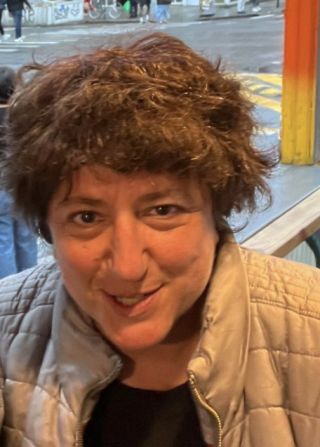 Dr. Cambre is an Argentine/Canadian scholar whose work explores vernacular visual expression asking: How do people produce and direct the visual space? How is the image a doing? What are the social and cultural work/ings of images? Broadly situated in visual sociology and post-critical pedagogies, her interests include critical policy analysis, sociology of information, image studies, and politics of representation. She has ongoing projects on visual processes of legitimation, digital image theory and polymedia literacies. Dr. Cambre’s writing has been published in Tier 1 journals such as Visual Arts Research; Social Media +Society; Qualitative Inquiry, Current Sociology and Cultural Sociology. Her latest monograph was co-authored with Dr. Christine Lavrence at King’s College, Western University, Lavrence, C. (2023) Toward a Sociology of Selfies: The Filtered Face (Routledge UK). And her latest edited volume was co-edited with Edna Barromi-Perlman, & David Herman Jr. (Eds) (2022) Visual Pedagogies: Concepts, Cases & Practices (Brill | Sense Publishers, NL). Cambre’s artistic works in encaustic, photography and multi-media collage have appeared as book and magazine cover art and in juried competitions.
Dr. Cambre is an Argentine/Canadian scholar whose work explores vernacular visual expression asking: How do people produce and direct the visual space? How is the image a doing? What are the social and cultural work/ings of images? Broadly situated in visual sociology and post-critical pedagogies, her interests include critical policy analysis, sociology of information, image studies, and politics of representation. She has ongoing projects on visual processes of legitimation, digital image theory and polymedia literacies. Dr. Cambre’s writing has been published in Tier 1 journals such as Visual Arts Research; Social Media +Society; Qualitative Inquiry, Current Sociology and Cultural Sociology. Her latest monograph was co-authored with Dr. Christine Lavrence at King’s College, Western University, Lavrence, C. (2023) Toward a Sociology of Selfies: The Filtered Face (Routledge UK). And her latest edited volume was co-edited with Edna Barromi-Perlman, & David Herman Jr. (Eds) (2022) Visual Pedagogies: Concepts, Cases & Practices (Brill | Sense Publishers, NL). Cambre’s artistic works in encaustic, photography and multi-media collage have appeared as book and magazine cover art and in juried competitions.
Anne Cockcroft
 Dr. Anne Cockcroft (she/her) is a Professor at McGill University's Department of Family Medicine, where she works with CIET-PRAM (Community Information for Empowerment and Transparency – Participatory Research at McGill), led by Dr. Neil Andersson.
Dr. Anne Cockcroft (she/her) is a Professor at McGill University's Department of Family Medicine, where she works with CIET-PRAM (Community Information for Empowerment and Transparency – Participatory Research at McGill), led by Dr. Neil Andersson.
With a career dedicated to addressing gender-based violence, Dr. Cockcroft's research spans southern Africa and Pakistan, where she has led large-scale surveys and qualitative studies to inform strategies that challenge harmful gender norms and reduce violence. Her current work in Botswana explores the interconnected causes of violence against young women and suicide among young men, with a focus on the highly marginalized LGBTQ+ community.
Dr. Cockcroft is also deeply involved in youth-centred projects. In Bauchi, Nigeria, she leads an initiative to improve adolescent sexual and reproductive health (ASRH), engaging adolescents and community stakeholders to co-design solutions based on local evidence.
Incorporating the arts into her work, she collaborates on projects that use docudramas and cellphilms to spark dialogue and action within communities, helping young people and their families address pressing issues through creative storytelling and participatory methods.
Ashwin Desai
 Ashwin Desai is Professor of Sociology and the SARCHI Chair in Social Change at the University of Johannesburg. Among his books are We are the Poors: Community Struggles in Post-Apartheid South Africa, Reading Revolution: Shakespeare on Robben Island, Wentworth: The Beautiful Game and the Making of Place (winner of the National Institute of Humanities and Social Sciences {NIHSS} for the best single authored book, 2021), Reverse Sweep: A Story of South African Cricket Since Apartheid and most recently the co-authored Durban’s Casbah: Bunny Chows, Bolsheviks and Bioscopes which was also awarded an NIHSS prize.
Ashwin Desai is Professor of Sociology and the SARCHI Chair in Social Change at the University of Johannesburg. Among his books are We are the Poors: Community Struggles in Post-Apartheid South Africa, Reading Revolution: Shakespeare on Robben Island, Wentworth: The Beautiful Game and the Making of Place (winner of the National Institute of Humanities and Social Sciences {NIHSS} for the best single authored book, 2021), Reverse Sweep: A Story of South African Cricket Since Apartheid and most recently the co-authored Durban’s Casbah: Bunny Chows, Bolsheviks and Bioscopes which was also awarded an NIHSS prize.
Karishma Desai
Dr. Karishma Desai’s interdisciplinary scholarship, teaching, and professional engagements employ anthropological and feminist lenses in the study of childhood/youth, gender, and education. Her central concerns gravitate around the politics of knowledge and being and attend to how gendered and racialized differences are stabilized and unsettled. She examines the contested ways in which global norms about gender and childhood/youth are consolidated, translated, and negotiated in educational. Attending to global discourses about gender and childhood alongside the everyday embodied and relational cultural lives of young people within unequal educational contexts, she investigates the kinds of gendered subjectivities that are forwarded as desirable with particular attention to the values, aspirations, and affective orientations made available. In doing so, she is interested in onto-epistemic questions related to sites of figuring and educating young people. She asks: what knowledges and ontologies matter in constructions of gendered childhoods? How have they come to matter and how are they disrupted? As a scholar and educator, she is invested in attending to educational problems by foregrounding the construction of youth, their complex material lives, subjugated knowledges, and modes of being that might offer new possibilities. These questions and investments result in the study of coloniality within educational sites and feminist scholarship that decenters liberal, anthropocentric constructions of the human.
Dr. Desai’s first line of scholarly inquiry examines the circulation of gender discourses within international development sites. Her in-progress book manuscript, Learning to Aspire: normative girlhood within educational and international development projects; it is anchored in a transnational feminist framework concerned with coloniality, geopolitics and global capitalism. She is currently working on a book manuscript based on multi-sited ethnography that examines desired subjectivities and knowledges attached to racialized girlhoods within skills-focused girl empowerment interventions across New Delhi and New York City. She has a new project along these lines in collaboration with UNGEI that examines the circulation of gender transformative education as a discourse and practice, and its potential for radical feminist change.
Her second line of inquiry continues her focus on gendered aspirations and futures as articulated in and through the labor and care of young women. It attends to Adivasi (Indigenous) educational sites attached to social movements in Western India, drawing on scholarship examining decolonized futurities with specific attention to human/more-than human relationalities.
Sarah Flicker
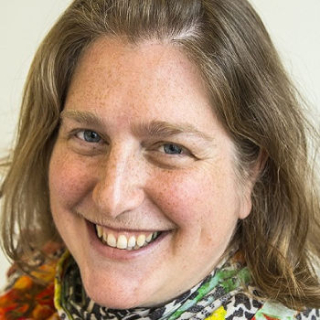 Sarah Flicker is a York Research Chair (Tier 2) in Community-Based Participatory Research and a Full Professor in the Faculty of Environmental and Urban Change at York University. Her research focuses on engaging youth and other stakeholders in environmental, sexual, and reproductive justice. She is particularly interested in community-based participatory methodologies and contributes to research teams addressing adolescent sexual and reproductive health and gender-based violence in Canada and South Africa.
Sarah Flicker is a York Research Chair (Tier 2) in Community-Based Participatory Research and a Full Professor in the Faculty of Environmental and Urban Change at York University. Her research focuses on engaging youth and other stakeholders in environmental, sexual, and reproductive justice. She is particularly interested in community-based participatory methodologies and contributes to research teams addressing adolescent sexual and reproductive health and gender-based violence in Canada and South Africa.
Her recent publications cover health promotion, sexuality, ethics, decolonizing methodologies, participatory visual methods, and community-based participatory research methods. Her work has influenced policy at municipal, provincial, and federal levels, and her research teams have received several prestigious awards for youth engagement in health research. Flicker is also an inaugural member of the Royal Society of Canada’s College of New Scholars, Artists, and Scientists.
Geetanjali Gill
 Geetanjali Gill has worked as a gender and development practitioner for more than 17 years with international, national, and local development organizations (e.g. UN, government, NGOs, grassroots organizations) in Sub-Saharan Africa and South Asia, Canada, and the UK. She has formulated, implemented, and evaluated gender-responsive and gender-transformative projects, and contributed to policy level discussions on global development and gender equality. In 2021, she implemented a project on the empowerment of women and girls with albinism in Sierra Leone, funded by the Fund for Innovation and Transformation and Global Affairs Canada. One of the project activities involved advocating for rights through the use of digital stories. Geetanjali is embarking on a new four-year project, funded by Global Affairs Canada, focused on gender equality and inclusive education for children and adolescents with disabilities in Sierra Leone. This project will incorporate photovoice and cellphilming with children/adolescents. Geetanjali has also worked as a scholar/researcher since 2020, implementing several multi-country, multi-year, collaborative research projects focused on socio-cultural norms and gender-transformative change, and the use of participatory, arts-based research methods with women and adolescents in Mali, Senegal, Uganda, Lebanon, Rwanda, Mozambique, Ghana, Nepal, and Bangladesh. She has collaborated with NGOs such as Right to Play International and JNUS Bangladesh. At the University of the Fraser Valley, Geetanjali teaches courses such as ‘Gender and Global Development’, and ‘Decolonizing Aid and Development’. She also supervises students who carry out global practicums with development NGOs and helps to organize global dialogues between youth at UFV and youth in other countries.
Geetanjali Gill has worked as a gender and development practitioner for more than 17 years with international, national, and local development organizations (e.g. UN, government, NGOs, grassroots organizations) in Sub-Saharan Africa and South Asia, Canada, and the UK. She has formulated, implemented, and evaluated gender-responsive and gender-transformative projects, and contributed to policy level discussions on global development and gender equality. In 2021, she implemented a project on the empowerment of women and girls with albinism in Sierra Leone, funded by the Fund for Innovation and Transformation and Global Affairs Canada. One of the project activities involved advocating for rights through the use of digital stories. Geetanjali is embarking on a new four-year project, funded by Global Affairs Canada, focused on gender equality and inclusive education for children and adolescents with disabilities in Sierra Leone. This project will incorporate photovoice and cellphilming with children/adolescents. Geetanjali has also worked as a scholar/researcher since 2020, implementing several multi-country, multi-year, collaborative research projects focused on socio-cultural norms and gender-transformative change, and the use of participatory, arts-based research methods with women and adolescents in Mali, Senegal, Uganda, Lebanon, Rwanda, Mozambique, Ghana, Nepal, and Bangladesh. She has collaborated with NGOs such as Right to Play International and JNUS Bangladesh. At the University of the Fraser Valley, Geetanjali teaches courses such as ‘Gender and Global Development’, and ‘Decolonizing Aid and Development’. She also supervises students who carry out global practicums with development NGOs and helps to organize global dialogues between youth at UFV and youth in other countries.
Emma Harden-Wolfson
 Emma Harden-Wolfson, PhD, is an Assistant Professor in the Department of Integrated Studies in Education (DISE), Faculty of Education, McGill University. She is an international and comparative higher education policy specialist with regional specializations in Central Asia, Canada, Europe, and Latin America. Over the past two decades, Emma has worked in higher education research, teaching, policy analysis, consultancy, and university administration across four continents.
Emma Harden-Wolfson, PhD, is an Assistant Professor in the Department of Integrated Studies in Education (DISE), Faculty of Education, McGill University. She is an international and comparative higher education policy specialist with regional specializations in Central Asia, Canada, Europe, and Latin America. Over the past two decades, Emma has worked in higher education research, teaching, policy analysis, consultancy, and university administration across four continents.
Emma’s research explores how and why education policy changes across contexts and the implications of policy change and reform. Focussing on higher education policy, Emma uses a range of qualitative methods to research the intersections between the policy process and lived experiences and the actors who are leading policy change. Cutting across her research is a commitment to increasing equity by examining the historic barriers and current challenges to inclusion in higher education.
Prior to joining DISE, Emma was Head of Research and Foresight at UNESCO’s International Institute for Higher Education in Latin America and the Caribbean where she led research on the right to higher education, digital transformations, artificial intelligence, student mobility, and the futures of higher education.
Blane Harvey
 Blane Harvey is an Associate Professor and William Dawson Scholar at McGill University’s Department for Integrated Studies in Education (Canada) where he leads the Leadership and Learning for Sustainability Lab. His research examines how knowledge on climate change and sustainability is produced, validated, and communicated, and how facilitated learning and knowledge sharing can support collective action on these global challenges. ways that universities can better support collaboration and knowledge co-production across diverse disciplines and communities. He is particularly interested in how forms of participatory and collaborative inquiry can help to counter forms of exclusion in understanding and responding to global challenges like climate change.
Blane Harvey is an Associate Professor and William Dawson Scholar at McGill University’s Department for Integrated Studies in Education (Canada) where he leads the Leadership and Learning for Sustainability Lab. His research examines how knowledge on climate change and sustainability is produced, validated, and communicated, and how facilitated learning and knowledge sharing can support collective action on these global challenges. ways that universities can better support collaboration and knowledge co-production across diverse disciplines and communities. He is particularly interested in how forms of participatory and collaborative inquiry can help to counter forms of exclusion in understanding and responding to global challenges like climate change.
Jayne Malenfant
 Jayne Malenfant (they/them) is an Assistant Professor in the Department of Integrated Studies in Education at McGill University, in Tio’tiá:ke/Montreal, Canada. Their work looks at youth, lived experience, and community leadership of research and action, with a lens on housing and educational justice. Their most recent project explores the experiences of Two-Spirit, trans, non-binary and gender-diverse people in the form of zines.
Jayne Malenfant (they/them) is an Assistant Professor in the Department of Integrated Studies in Education at McGill University, in Tio’tiá:ke/Montreal, Canada. Their work looks at youth, lived experience, and community leadership of research and action, with a lens on housing and educational justice. Their most recent project explores the experiences of Two-Spirit, trans, non-binary and gender-diverse people in the form of zines.
April Mandrona
 April Mandrona (she/her) is an Associate Professor and Director of the Institute for Art, Community & Transdisciplinary Studies (InACTS) at NSCAD University, Canada. Her transdisciplinary research explores the role of creative production in social engagement, learning, activism, and connection across differences. Her work spans child and youth studies, rural studies, refugee studies, and visual studies, focusing on participants who have been forcibly displaced, rural dwellers, and gender and sexual minorities.
April Mandrona (she/her) is an Associate Professor and Director of the Institute for Art, Community & Transdisciplinary Studies (InACTS) at NSCAD University, Canada. Her transdisciplinary research explores the role of creative production in social engagement, learning, activism, and connection across differences. Her work spans child and youth studies, rural studies, refugee studies, and visual studies, focusing on participants who have been forcibly displaced, rural dwellers, and gender and sexual minorities.
Mandrona's research interests center on critical art education, cultural production by youth and communities, and issues of well-being, belonging, and solidarity. She believes that multimodal art making can empower marginalized communities to engage with complex issues affecting their lives. Her research includes three main areas: rurality and spatial justice through a visual lens, community art education with underserved populations, and creative, ethical practice in research, policy, and service provision.
Her ongoing SSHRC-funded project, "Storying Transnational Knowledges," examines how storytelling and network building can enhance the well-being, cultural survival, and resistance of newcomers, particularly young people, in Canada and Australia. This project aims to foster skills sharing, innovation, and the integration of newcomers through storytelling and to mobilize transformative knowledge for NGOs, governments, and educational institutions.
As a community art education specialist, Mandrona teaches across various university areas and program levels, including Art Education, Contemporary Culture, and Foundation Studies. She developed and directed the NSCAD Master of Arts in Art Education (MAAE), a thesis-based program designed to cultivate innovative teachers, artists, designers, and curators while fostering a culture that values diverse and creative learners.
Graciela Martínez-Zalce Sánchez
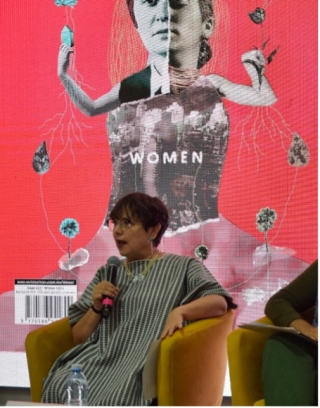 Graciela Martínez-Zalce studied Hispanic Languages and Literatures at UNAM, and earned a masters and a PhD in modern literature at Universidad Iberoamericana, in Mexico.
Graciela Martínez-Zalce studied Hispanic Languages and Literatures at UNAM, and earned a masters and a PhD in modern literature at Universidad Iberoamericana, in Mexico.
Since 1992 she has worked as a researcher in Canadian Cultural Studies, where she mainly studies film and literature in North America, at the Centre for Research on North America at the National Autonomous University of Mexico, where she currently is the Director. She is a member of the National System of Researchers, CONAHCyT, and of the Mexican Academy of Sciences.
She is a founding member of the Taller de Teoría y Crítica Literarias Diana Morán, a pioneer workshop on gender studies in Mexico that has been working on feminist and gender theory, literary criticism and publishing for 40 years.
She has directed the Revista Mexicana de Estudios Canadienses and Voices of Mexico. As an author, she has published books centered on the works of women such as Emily Carr y Frida Kahlo: lazos artísticos (2003), Una poética de lo subterráneo: la narrative de Inés Arredondo (1996). She has been doing film and literary criticism with gender studies as a framework and has published numerous edited volumes and articles around those subjects.
Nowadays, her two main lines of research deal with sociodigital communities of practice related to writing and reading literature, and representations of Mexico and Mexicans in Canadian film. With Claudia Lucotti, she is also part of a workshop that is preparing a book about artistic representations of residential schools in Canada for Mexican students.
Nanre Nafzinger
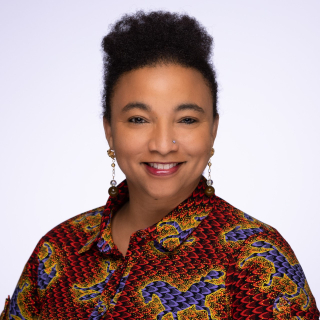 Nanre is an educator-organizer-scholar who serves her various communities through writing, research, teaching, and pan-Africanist organizing. She currently works as an Assistant Professor of African/Black Studies in Education at McGill University. Nanre’s research contributes to debates and collective knowledge production in the areas of critical education policy studies, Black/African Studies in Education, decolonial approaches to education, global critical race theory, critical youth studies, Black/Africana social movements, youth participatory action research; and the role of civil society in education and democratic nation-building in the Global South.
Nanre is an educator-organizer-scholar who serves her various communities through writing, research, teaching, and pan-Africanist organizing. She currently works as an Assistant Professor of African/Black Studies in Education at McGill University. Nanre’s research contributes to debates and collective knowledge production in the areas of critical education policy studies, Black/African Studies in Education, decolonial approaches to education, global critical race theory, critical youth studies, Black/Africana social movements, youth participatory action research; and the role of civil society in education and democratic nation-building in the Global South.
Naomi Nichols
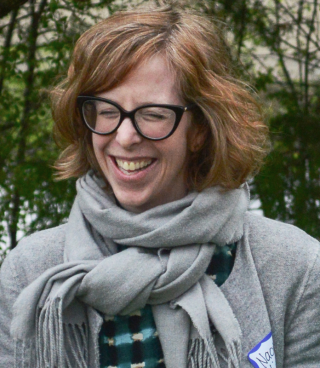 Naomi Nichols is an Associate Professor of Sociology and Tier-2 Canada Research Chair in Community-Partnered Social Justice at Trent University. She is community-engaged scholar of social inequality who largely does participatory research with communities most impacted by the social problem(s) under investigation. Nichols is most known for conducting institutional ethnographic research -- a feminist sociological approach described as a sociology for people. Research focuses on discovering new things about institutionally-mediated processes of marginalization and privilege. In this context, Nichols is not interested in gender as a fixed social category; rather, she is interested in how identity categories get produced, how they evolve, and how the categories themselves coordinate action and consciousness across time and space.
Naomi Nichols is an Associate Professor of Sociology and Tier-2 Canada Research Chair in Community-Partnered Social Justice at Trent University. She is community-engaged scholar of social inequality who largely does participatory research with communities most impacted by the social problem(s) under investigation. Nichols is most known for conducting institutional ethnographic research -- a feminist sociological approach described as a sociology for people. Research focuses on discovering new things about institutionally-mediated processes of marginalization and privilege. In this context, Nichols is not interested in gender as a fixed social category; rather, she is interested in how identity categories get produced, how they evolve, and how the categories themselves coordinate action and consciousness across time and space.
Max Schleser
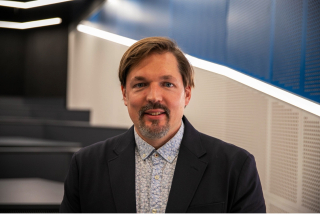 Max Schleser is Associate Professor in Film and Television and a researcher in the Centre for Transformative Media Technologies (CTMT) at Swinburne University of Technology (Melbourne, Australia), Adobe Creative Educator Innovator, Founder of the Mobile Innovation Network & Association (www.mina.pro) and Screening Director of the International Mobile Innovation Screening & Festival.
Max Schleser is Associate Professor in Film and Television and a researcher in the Centre for Transformative Media Technologies (CTMT) at Swinburne University of Technology (Melbourne, Australia), Adobe Creative Educator Innovator, Founder of the Mobile Innovation Network & Association (www.mina.pro) and Screening Director of the International Mobile Innovation Screening & Festival.
Max is an award-winning filmmaker with expertise in immersive media, documentary film and creative arts 4.0 with a focus on cinematic VR and interactive filmmaking (https://www.schleser.nz/) . His research explores screen production, emerging media and smartphone filmmaking for community engagement, creative transformation and transmedia storytelling. His experimental films, moving-image arts and cinematic VR projects are screened at film festivals, in galleries and museums. His mobile feature film Max with a Keitai (2007) is included in the public film archive in the Forum des Images in Paris (France) and the smartphone documentary feature Frankenstorm (2014) broadcasted on CTV, Canterbury Television (Aotearoa/New Zealand).
Max co-edited the books Mobile Media Making in an Age of Smartphones, Mobile Story Making in an Age of Smartphones and Mobile Storytelling in an Age of Smartphones and edited journals for Studies in Documentary Film, Ubiquity, the Journal of Pervasive Media and the Journal of Creative Technologies. His monograph Smartphone Filmmaking: Theory and Practice was published by Bloomsbury in 2021.
Max conceptualises and conducts mobile storytelling workshops for a number of cultural institutes, city councils and government bodies in Australia, New Zealand and the UK. He creates methods, resources and toolboxes for various communities to engage in and benefit from smartphone filmmaking, digital and interactive media. In these workshops (https://www.behance.net/MaxSchleser | https://www.youtube.com/c/maxschleser) he demonstrates how to utilise smartphones for storytelling, upskilling in digital literacies and community engagement through storytelling. His research builds bridges between communities and gives them a voice to represent them through their stories.
Max establishes knowledge translation process, which empowere community groups that often do not have access to media technology and/or education. He co-developed youth and senior citizens leadership and mentoring programs in interdisciplinary teams to ensure that skills are maintained within the specific communities. This approach is sustainable and realizes the potential of digital and mobile storytelling to engage participants in social change.
Joshua Schawb-Cartas
 Schwab Cartas is a mixed race Indigenous Binnizá-Austrian researcher, language revitalization activist, assistant professor at NSCAD, with 20 years of lived experience of working with Indigenous youth and Elders in his maternal grandfather’s community, as well as many other Indigenous communities across Turtle Island (North America). He is also a leading specialist in cellphilming, a participatory visual method that uses participants' own cell phones and their everyday media making skills to address social and or community concerns. More specifically he developed a cellphilm method grounded in his ancestral binnizá epistemology to create a culturally responsive approach to researching language revitalization and cultural preservation. As a parent, Schwab Cartas, has used his experience of cellphilming with his young daughter to create several innovative and practical resources on how to cellphilm with young children. Schwab Cartas (NSCAD) alongside Dr. Caldairou-Bessette (UQAM/McGill) and Dr. Claudia Mitchell (McGill) in the 2022 article entitled Let’s Get Cellphilming! Expanding the Use of Participatory Visual Methods with Young Children explore and share their experiences of working with children and cellphilming. Schwab Cartas knowledge of participatory visual methods coupled with his many years of lived experiences of working in communities with a diverse age population aims to help support both participants and researchers in TRANSFORM.
Schwab Cartas is a mixed race Indigenous Binnizá-Austrian researcher, language revitalization activist, assistant professor at NSCAD, with 20 years of lived experience of working with Indigenous youth and Elders in his maternal grandfather’s community, as well as many other Indigenous communities across Turtle Island (North America). He is also a leading specialist in cellphilming, a participatory visual method that uses participants' own cell phones and their everyday media making skills to address social and or community concerns. More specifically he developed a cellphilm method grounded in his ancestral binnizá epistemology to create a culturally responsive approach to researching language revitalization and cultural preservation. As a parent, Schwab Cartas, has used his experience of cellphilming with his young daughter to create several innovative and practical resources on how to cellphilm with young children. Schwab Cartas (NSCAD) alongside Dr. Caldairou-Bessette (UQAM/McGill) and Dr. Claudia Mitchell (McGill) in the 2022 article entitled Let’s Get Cellphilming! Expanding the Use of Participatory Visual Methods with Young Children explore and share their experiences of working with children and cellphilming. Schwab Cartas knowledge of participatory visual methods coupled with his many years of lived experiences of working in communities with a diverse age population aims to help support both participants and researchers in TRANSFORM.
Kaylan C. Schwarz
Dr. Kaylan C. Schwarz is an Assistant Professor in the School of Liberal Education at the University of Lethbridge. She utilizes qualitative, visual, participatory, and feminist methodologies to explore the social construction, performance, and representation of identities. She is the Principal Investigator on the SSHRC Insight Development Grant project Constructing Feminist Identities Through Visual and Participatory Methods and she is the co-editor of Studies on the Social Construction of Identity and Authenticity (Routledge) and Collaborative Methods: Participatory Data Analysis in Feminist Research (Forthcoming, University of Alberta Press).
Jessica Taft
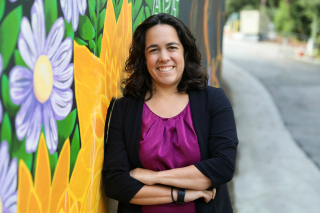 Jessica Taft is Professor of Latin American and Latino Studies at the University of California Santa Cruz and the Faculty Director of the Dolores Huerta Research Center for the Americas. Rooted in critical interdisciplinary approaches to child and youth studies, Dr. Taft’s research focuses on young people’s contributions to social change through activism and social movements in North and South America. Building on nearly twenty years of research with young activists, she is increasingly focused on these young people’s encounters with adult-run political institutions and the various programs that seek to include them in policy-making. In this vein, she is currently working on a book project that looks at the history of how children’s political participation has been imagined, produced, and institutionalized within the child rights sphere
Jessica Taft is Professor of Latin American and Latino Studies at the University of California Santa Cruz and the Faculty Director of the Dolores Huerta Research Center for the Americas. Rooted in critical interdisciplinary approaches to child and youth studies, Dr. Taft’s research focuses on young people’s contributions to social change through activism and social movements in North and South America. Building on nearly twenty years of research with young activists, she is increasingly focused on these young people’s encounters with adult-run political institutions and the various programs that seek to include them in policy-making. In this vein, she is currently working on a book project that looks at the history of how children’s political participation has been imagined, produced, and institutionalized within the child rights sphere
She is the author of Rebel Girls: Youth Activism and Social Change Across the Americas (NYU Press, 2011), The Kids Are in Charge: Activism and Power in Peru’s Movement of Working Children (NYU Press, 2019), and numerous journal articles on girls’ activism, children’s participation, youth politics, and critical civic engagement. Dr. Taft is part of a variety of local, national, and international collaborative projects focused on child and youth participation and has worked with funders and non-governmental organizations to deepen their analysis of the challenges and possibilities of meaningful engagement with young people.
Paul Ugor
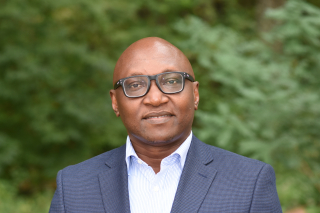 Dr Paul Ugor is a Professor in the Department of English Language and Literature at the University of Waterloo, Ontario, Canada. His research and teaching interests are in the areas of Modern African Literatures and Cultures, Anglophone Postcolonial World Literatures, Cultural Studies, Global Black Studies, and New Media Cultures in the Global South. He is the author of Nollywood: Popular Culture and Narratives of Youth Struggles in Nigeria (2016) and co-editor of several collections including, Youth and Popular Culture in Africa: Media, Music, and Politics (2021); African Youth Cultures in the Age of Globalization: Challenges, Agency, and Resistance (2017); Special Issue of Critical African Studies on ‘African Youth, Popular Culture, and the Ethnographic Sense’ (2023); Postcolonial Text, Vol. 8, No. 3 & 4, 2013; and a special issue of Review of Education, Pedagogy and Cultural Studies 31:4 (2009). He is currently working on three edited volumes, The Postcolonial Bildungsroman: Youth, Representational Politics and Aesthetic Reinventions (co-edited with Dr Arnab Roy of Florida Gulf Coast University, currently under contract with the University of Alberta Press); The Postcolonial Bildungsroman and the Character of Place, co-edited with Arnab Dutta Roy, Paul Ugor & Maria Puleo, Simone, and under review with the University of Nebraska Press; and Narrating Transitional Justice: Memory in the Age of Truth and Reconciliation (co-edited with Bonny Ibhawoh of McMaster University, and under review with McGill-Queens University Press, and a monograph tentatively entitled Afropolitan Humanism: Popular Cinema and Humanist Advocacy in Nigeria. The latter project examines the humanitarian uses to which Femi Odugbemi, Nollywood’s leading film director and television producer, has put his screen media work as a socially-committed filmmaker. He has also authored more than three dozen journal articles/book chapters published in reputable African Studies’ journals and edited books. Prof. Ugor is an Alumnus of the National Humanities Centre in North Carolina, US.
Dr Paul Ugor is a Professor in the Department of English Language and Literature at the University of Waterloo, Ontario, Canada. His research and teaching interests are in the areas of Modern African Literatures and Cultures, Anglophone Postcolonial World Literatures, Cultural Studies, Global Black Studies, and New Media Cultures in the Global South. He is the author of Nollywood: Popular Culture and Narratives of Youth Struggles in Nigeria (2016) and co-editor of several collections including, Youth and Popular Culture in Africa: Media, Music, and Politics (2021); African Youth Cultures in the Age of Globalization: Challenges, Agency, and Resistance (2017); Special Issue of Critical African Studies on ‘African Youth, Popular Culture, and the Ethnographic Sense’ (2023); Postcolonial Text, Vol. 8, No. 3 & 4, 2013; and a special issue of Review of Education, Pedagogy and Cultural Studies 31:4 (2009). He is currently working on three edited volumes, The Postcolonial Bildungsroman: Youth, Representational Politics and Aesthetic Reinventions (co-edited with Dr Arnab Roy of Florida Gulf Coast University, currently under contract with the University of Alberta Press); The Postcolonial Bildungsroman and the Character of Place, co-edited with Arnab Dutta Roy, Paul Ugor & Maria Puleo, Simone, and under review with the University of Nebraska Press; and Narrating Transitional Justice: Memory in the Age of Truth and Reconciliation (co-edited with Bonny Ibhawoh of McMaster University, and under review with McGill-Queens University Press, and a monograph tentatively entitled Afropolitan Humanism: Popular Cinema and Humanist Advocacy in Nigeria. The latter project examines the humanitarian uses to which Femi Odugbemi, Nollywood’s leading film director and television producer, has put his screen media work as a socially-committed filmmaker. He has also authored more than three dozen journal articles/book chapters published in reputable African Studies’ journals and edited books. Prof. Ugor is an Alumnus of the National Humanities Centre in North Carolina, US.
Catherine Vanner
 Catherine is leading two projects studying activism for gender justice and transformation in education within Canada and transnationally. The Achieving Gender Justice in Education project analyzes the experiences of education administrators and student activists working to enhance gender justice in education across Canada. Currently in the initial phases of data collection, it begins with individual storytelling interviews with education administrators and student activists before bringing a subset of both groups together in an intergenerational participatory action research initiative.
Catherine is leading two projects studying activism for gender justice and transformation in education within Canada and transnationally. The Achieving Gender Justice in Education project analyzes the experiences of education administrators and student activists working to enhance gender justice in education across Canada. Currently in the initial phases of data collection, it begins with individual storytelling interviews with education administrators and student activists before bringing a subset of both groups together in an intergenerational participatory action research initiative.
The Leading Change project partners with the Transform Education network, a feminist coalition of youth-led organizations housed within UNGEI, to study activists’ experiences of youth-led feminist activism for gender transformative education. It involves 12 participants ages 18-25 from 11 countries across Asia and Africa using focus groups and digital stories. All data collection was conducted virtually, demonstrating the possibilities of transnational participatory art-based data collection without travel. Participants advocated for the uptake of gender transformative education, understood by participants as inherently intersectional and intersectoral and positioning education as a mechanism for social change. The digital stories they produced demonstrate its relevance across a wide range of country and cultural contexts and describe ongoing gender-based violence and discrimination particularly affecting girls and LGBTQ+ children in schools. In speaking to stakeholders seeking to engage with youth activists, participants call for funding opportunities that involve mentorship and capacity building and participation modalities that engage a diverse group of youth representatives and create sustained opportunities for influence with clear outcomes from their engagement.
